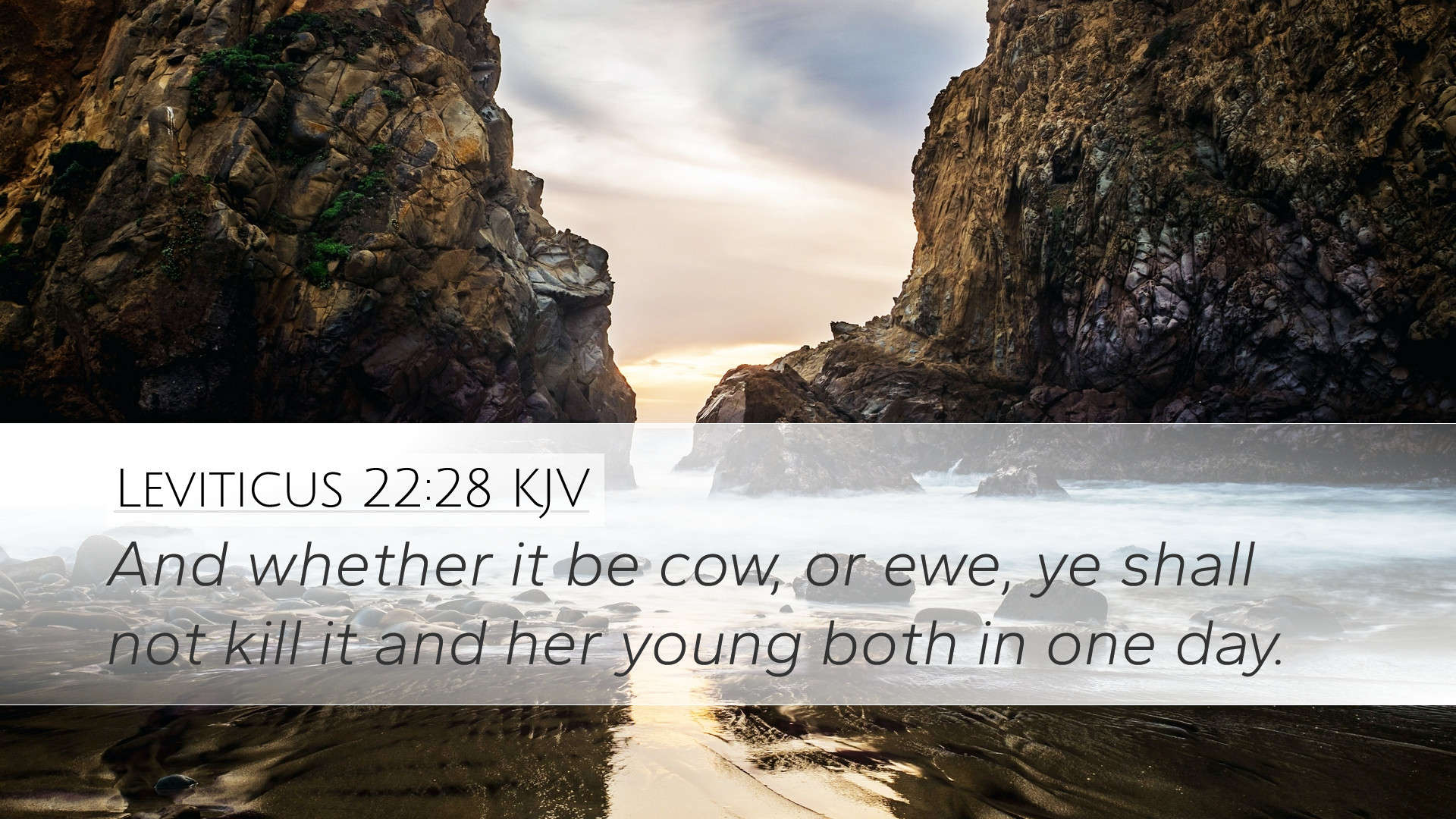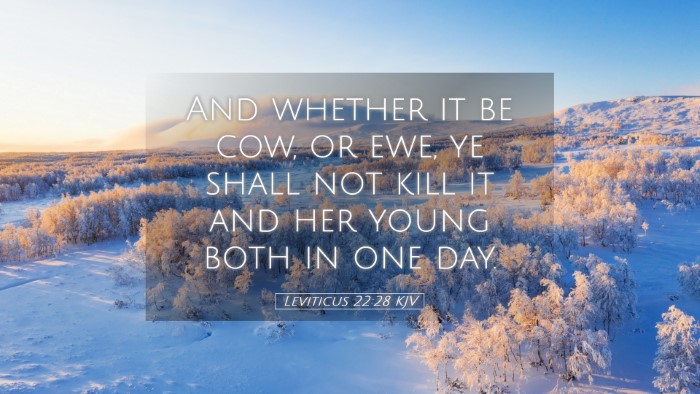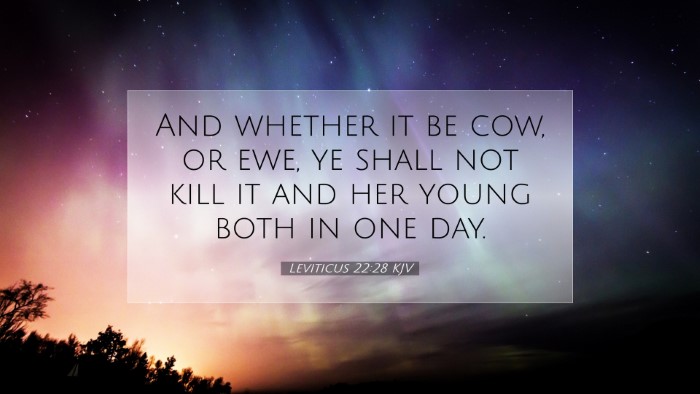Commentary on Leviticus 22:28
Leviticus 22:28 states: "And whether it be cow or ewe, ye shall not kill it and her young both in one day."
Introduction
The law provided in this verse speaks to the broader themes of compassion, holiness, and the sacredness of life within the community of Israel. It emphasizes God's desire for His people to demonstrate care and respect for living creatures, especially in relation to their sacrifice and the abundant life that He has promised.
Insights from Matthew Henry
Matthew Henry emphasizes the significance of this commandment in highlighting God's provision for life. He notes that:
- Compassion for Creation: This verse showcases God's concern for animals, illustrating His intent to maintain a balance between human needs and the welfare of living creatures. The prohibition against killing a mother and its young on the same day reflects a deep respect for familial bonds in creation.
- Symbolism in Sacrifice: Henry interprets this law as a metaphor for mercy and the sacredness of life, arguing that God desires His people to reflect His nature in their dealings with every form of life, thus reinforcing the notion that the act of sacrifice should not come at the cost of empathy and kindness.
Insights from Albert Barnes
Albert Barnes provides a detailed exegesis of the verse, focusing on the moral and ethical implications of the command. He highlights that:
- Preservation of Life: Barnes notes that the divine intention behind this regulation points to a broader ethical principle of protecting the young and vulnerable. By forbidding the slaughter of both mother and offspring, the command emphasizes the sanctity of life and the responsibilities of stewardship placed upon humanity.
- Societal Impact: The commentary suggests that this law had a communal aspect, fostering a society that values mercy. In adhering to such statutes, the community would bond over shared ethical values, cultivating a culture that celebrates life and demonstrates God’s compassion in their treatment of animals.
Insights from Adam Clarke
Adam Clarke offers a more theological reflection, intertwining the practical implications of this verse with its spiritual significance. He elaborates that:
- Divine Love and Care: Clarke views God's commandments as revelations of His character. The prohibition against killing both the cow and the ewe in one day acts as a reminder that God's love extends to all His creation. It suggests that humanity is called to emulate divine care in their actions.
- Historical Context: Clarke also addresses the historical context, noting that in the ancient Near East, such practices could be commonplace. Thus, God’s laws served to distinguish His people from surrounding nations, promoting a unique identity centered around righteousness and compassion.
Theological Implications
This verse underscores several key theological principles:
- The Holiness of God: The requirement signifies God's call for His people to reflect His holiness through their actions towards creation.
- The Importance of Compassion: The passage invites believers to extend compassion, recognizing the value of every creature that God has made.
- Sacredness of Life: It calls into question practices that undermine life, prompting a reevaluation of how life is valued in both a spiritual and physical sense, in a world that often fails to prioritize the sanctity of all living beings.
Application for Today’s Context
The command in Leviticus 22:28 continues to resonate with modern sensibilities regarding ethics, stewardship, and the treatment of animals. For pastors and theologians, this verse provides a rich foundation for exploring:
- Environmental Stewardship: The call for care extends to how humans interact with the environment, prompting a responsible approach to God's creation and advocacy for animal rights.
- Ethical Living: The teachings can influence contemporary discussions on ethics in agriculture, food production, and humane treatment of animals.
- Community Responsibility: Churches can use this as a basis for teaching compassion in their communities, fostering networks that value and protect all forms of life.
Conclusion
In conclusion, Leviticus 22:28 reflects God's deep concern for the ethical treatment of all living beings. As examined through the lenses of various commentaries, it reveals profound truths about compassion, responsibility, and holiness. By demonstrating care for creation, believers can truly reflect God's character, becoming agents of mercy and stewardship in a world that is often indifferent to the plight of the vulnerable. The insights drawn by Matthew Henry, Albert Barnes, and Adam Clarke provide a rich tapestry of understanding that is essential for theological education and pastoral application.


